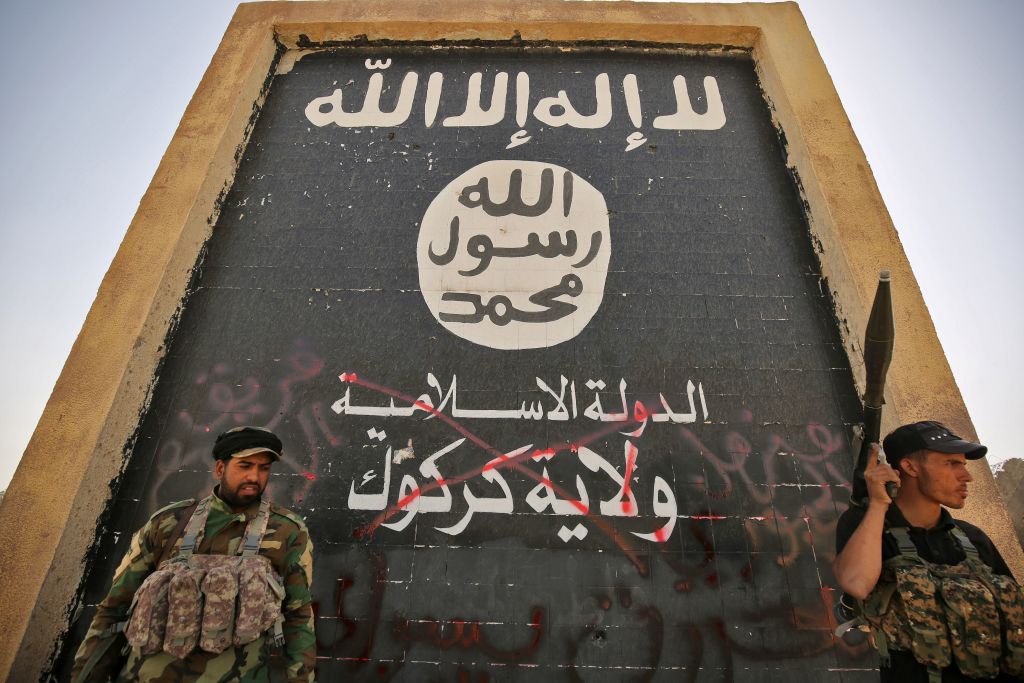The last Isis-held town in Iraq, Rawa, has fallen; across the border in Syria, the Russians declared a ‘total rout of the terrorists’. But this tough fight, which has taken three-and-half years, could all be in vain: the coalition which has driven Isis out now faces the gloomy prospect of winning the war and losing the peace. While Isis has been defeated, the next big challenge – how to address the Iranian drive for dominance in the Middle East – goes unanswered.
By ignoring this issue, the West is failing to learn one of the key lessons of the last three years: don’t treat each country as a vacuum. Isis’s ability to spread quickly and snatch territory across the region was a direct result of the weakening of state power in Baghdad, Damascus and Beirut. This allowed Sunni jihadists to use the Euphrates valley to spread throughout Syria in 2014. At the same time, Isis was able to gobble up mostly Sunni cities such as Mosul, Tirkit, Ramadi and Fallujah in Iraq. The caliphate cared little for geographical boundaries, and neither did Iranian-backed militias, who intervened in Syria to shore up Bashar al-Assad, and also answered the call to arms by Grand Ayatollah Ali al-Sistani to defend Iraq from the jihadists.
Now that Isis is in its death throes, Iran is determined to capitalise on its hard-won influence. The country is seeking to use its leverage in Iraq, Syria and Lebanon to carve out a corridor of power to the Mediterranean. Both Saudi Arabia and Israel have felt isolated as Iran sets down deeper roots in Syria and Iraq. But the West – which would usually speak up for Israel and other Middle Eastern allies on the international stage – is behind the curve on strategy because it never had a mandate to address post-Isis regional problems. Britain and the US must realise that winning the peace is as important as winning the war. That means sticking with the existing anti-Isis partners in Iraq, including the Kurdistan Regional Government, and the Syrian Democratic Forces in eastern Syria. The SDF has been a competent ally, blending Sunni Arab and Kurdish groups into a successful fighting force. But they are being largely left to fend for themselves.
Isis’s success in 2014 was fuelled by alienation in the Iraqi Sunni Arab community at the heavy-handed policies of Nouri al-Maliki’s Islamic Dawa Party. It is important to encourage Baghdad to embrace all of Iraq now, not only the Shiite sectarianism that it has relied on heavily in its war on Isis. The militias that were incorporated into Iraqi Security Forces are a challenge for the future of Baghdad.
Next comes the questions of Saudi Arabia and its Gulf allies, especially the United Arab Emirates. They have accused Qatar of supporting extremism in the region and Saudi Arabia recently dispatched its Gulf Affairs minister to eastern Syria to help in rebuilding efforts. In tandem, Riyadh and Abu Dhabi have put forward educational initiatives to combat religious extremist ideologies. This is as important as confronting foreign fighters who joined up with groups like Isis.
Despite understandable fatigue many feel at addressing issues in the Middle East, we are faced with a 1945 moment after years of conflict, and a regional strategy is necessary. It should be one that first of all addresses concerns about Iran’s agenda. The alternative – failing to tackle these issues – will merely sow the seeds for future conflicts.






Comments